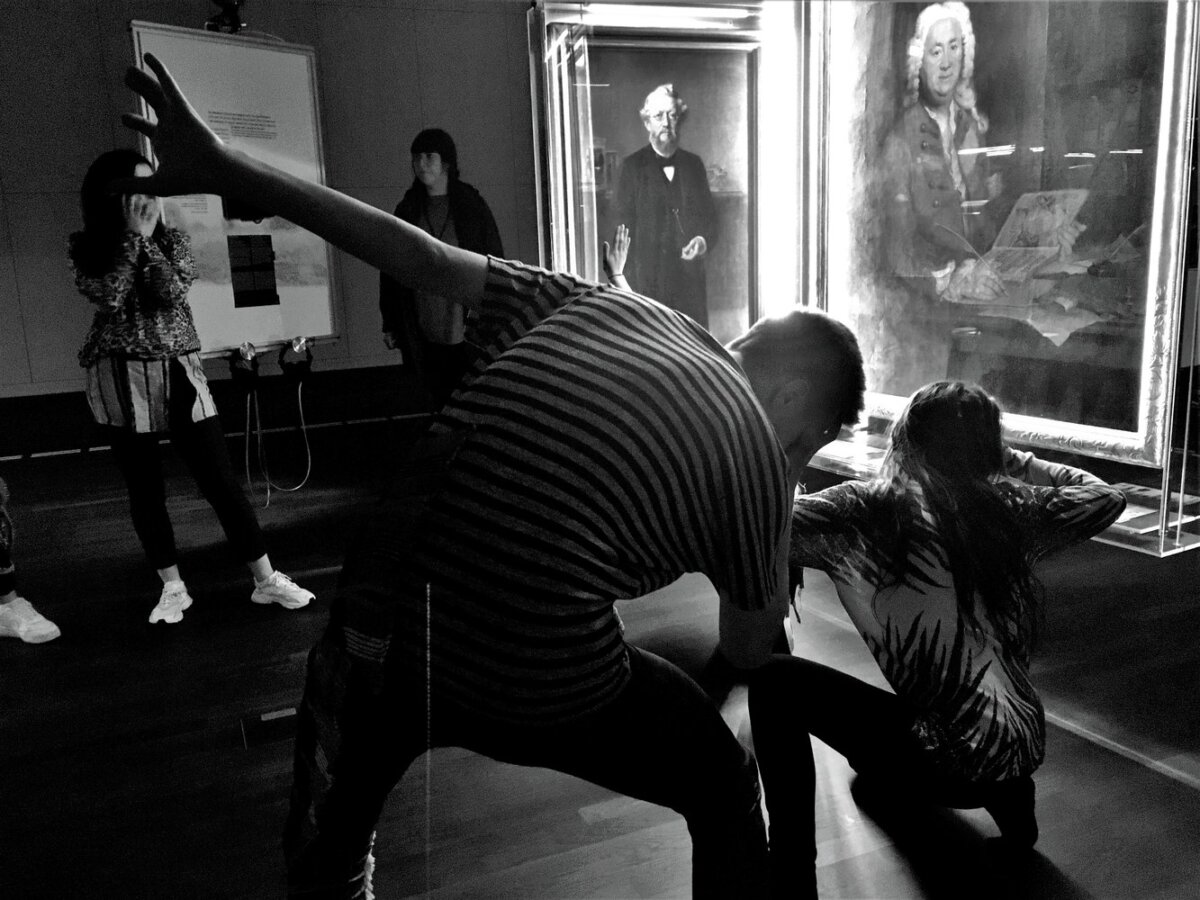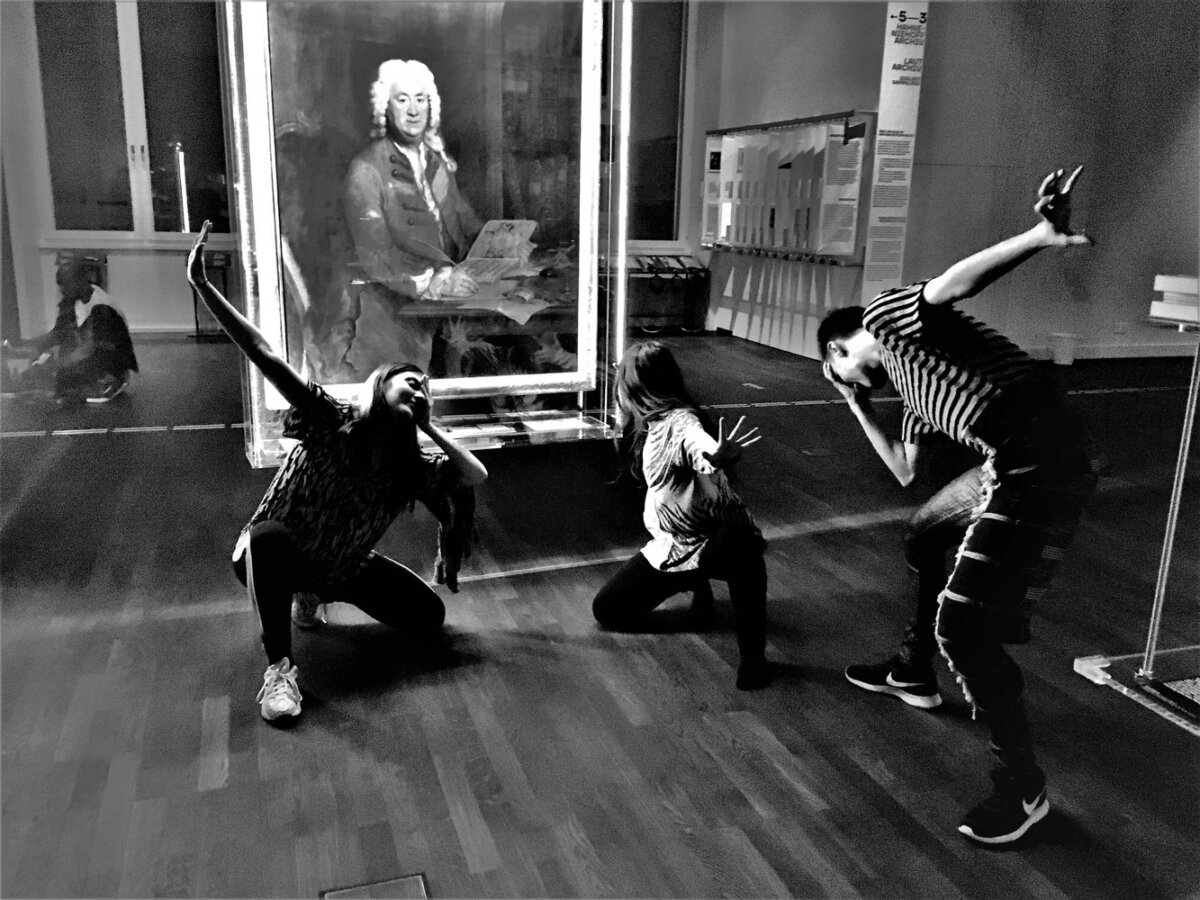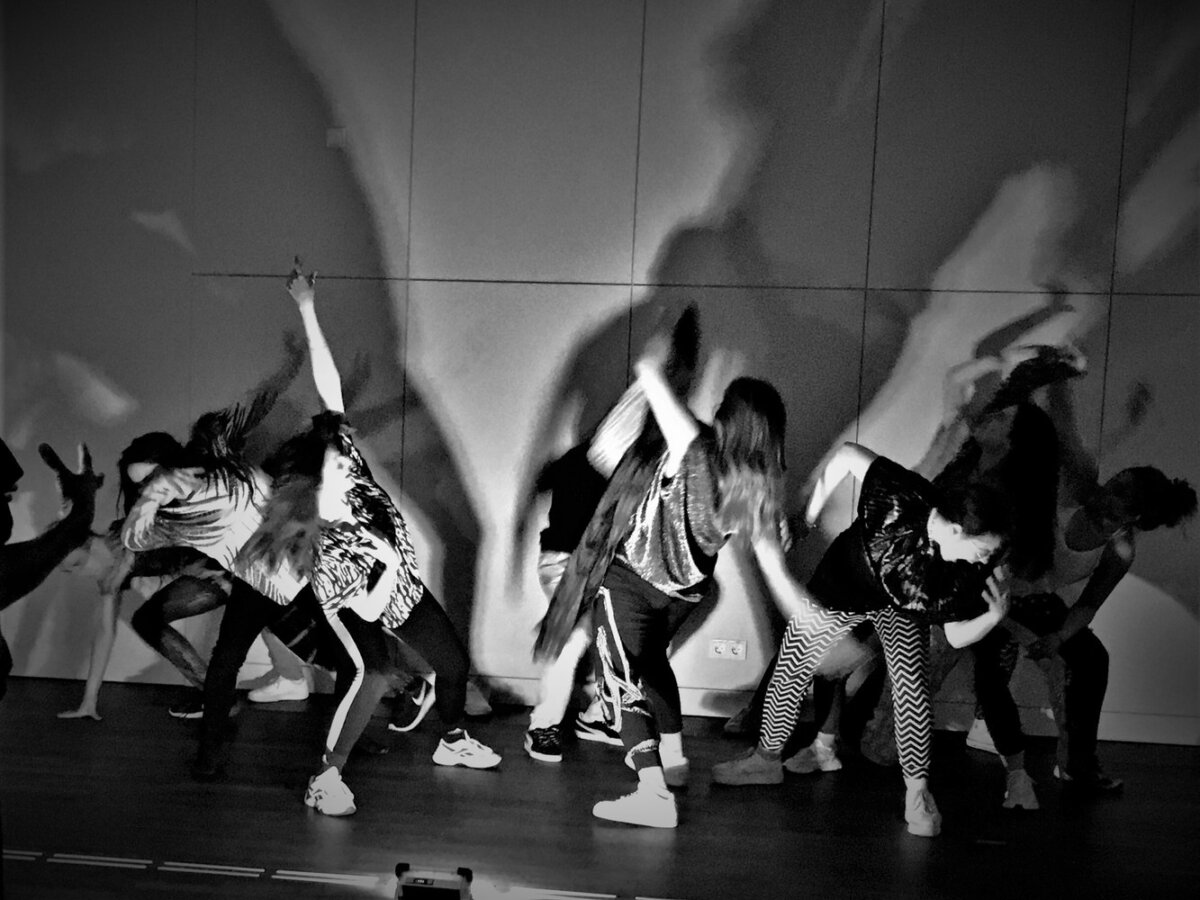The Humboldt Forum will be set in motion on 11 June. The fourth and final part of the Moving the Forum project, entitled Interacting, will be presented at various locations inside and outside the cultural institution. In this context, the Humboldt Labor will also become a dance floor: with the performance Decolonisation and memory of living masks by choreographer Ahmed Soura.
Baroque sounds at the site of the historic city palace: what may sound like the prelude to a royal soirée actually has a completely different reason. Mixed with modern sounds, historical fragments will be heard as background music when ‘The Dreamers’, a group of young people from Spandau, perform a critical choreography by dancer and artist Ahmed Soura. They don’t dance on light feet, but literally on the floor of the exhibition. Partly crawling and crawling, the dancers move through the space during a rehearsal, which itself is also set in motion. Instead of lightness, the choreography is fuelled by emotion – just like the background music that Soura has chosen. For Soura, who was born in Burkina Faso, the fact that the music composed especially for the performance by musician and composer Johannes Lauer also contains baroque elements is an important detail: ‘This palace here was built at a time when baroque music was an expression of sophistication – while raw colonialism was raging elsewhere.’
The motif of the mask is at the centre of Soura’s performance. He made a conscious decision to use this motif when exploring the theme of colonialism and decolonisation, which forms the central focus of his performance. Surprisingly, however, he does not refer solely to the museum objects that are currently at the centre of lively restitution debates, such as the Benin bronzes. Rather, he argues, we are all ‘living masks’ – masks that move through the world, especially in an age of globalisation and migration, taking our attitudes and preconceptions with them. At the same time, he refers to the ability of people to open up, change and adapt. ‘To decolonise,’ he summarises, ’means to understand that we ourselves are masks.’


